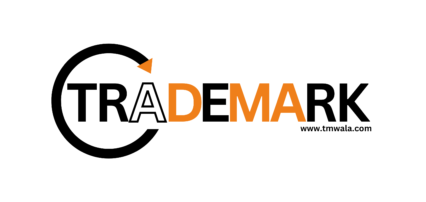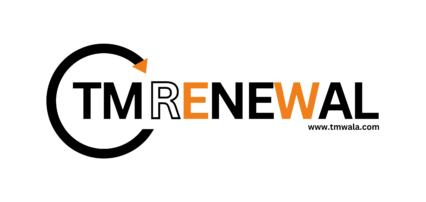
₹3,500.00 Original price was: ₹3,500.00.₹1,999.00Current price is: ₹1,999.00.

₹4,000.00 Original price was: ₹4,000.00.₹999.00Current price is: ₹999.00.

India’s trademark law scene is experiencing some well-deserved changes. With the government now centering on modernizing the legitimate systems to back advancement, financial development, and brand protection in India.
Several emerging patterns and policy shifts are expected to shape trademark law in India in 2025 and beyond. Few of these include major changes like greater digitization, better enforcement measures, global harmonization, and finally some protection for non-traditional trademarks. Understanding these changes is crucial for the Indian start-up scene looking to fortify their intellectual property rights and navigating this rapidly evolving market.
India has as of now made critical advancements in digitization of the trademark methods, thus lessening the reliance on manual filings and registration assistance. Be that as it may, another stage of advanced changes is anticipated in trademark law in India, as well as Indian Business Law, by joining the AI and blockchain revolution, modernising trademark management.
AI’s Role in Trademark Search and Examination:
The use of AI-driven search calculations will hopefully move forward the precision and proficiency of trademark examination, minimising the large number of clashes, overlaps, and litigation which usually arise. It may also eventually lead to decreasing the probability of false registrations and trademark infringements in India.
AI can moreover help trademark workplaces in surveying applications for compliance and uniqueness.
Blockchain for Trademark Records:
Blockchain innovation can give tamper-proof and straightforward records and as well keep records as a part of the open chain software system it operates on, as well as guaranteeing secure tracking of trademark possession, assignments, and renewals.
This development will help by offering assistance in combating extortion, unauthorized modifications, and disputes over ownership. Thus, in the future, it can even help settle or overall avoid trademark disputes like prior use as well. Decreasing unnecessary litigation which is rampant currently.
With the rise of online marketplaces, social media branding, and cross-border Digital commerce, Indian businesses confront modern dangers such as cybersquatting, forging, and trademark law in India. Future trademark law are likely to introduce stricter regulations to safeguard brand uniqueness and integrity in the digital space. These changes will also reflect on other Indian Business Law.
Key changes include:
Traditional trademarks such as logos, brand names, and slogans have long been ensured under trademark law in India. In any case, the modern market spaces are progressive in nature and driven by both tangible and intangible branding, requiring broader security for colour, sound, fragrance, movement, and hologram-based trademarks.
Many global jurisdictions already recognize non-traditional trademarks, and India is expected to follow suit by introducing clearer guidelines for registration and enforcement. This will be particularly beneficial for industries like luxury goods, hospitality, fintech, and entertainment, where unique brand experiences are a competitive differentiator for brand protection in India.
Trademark infringement in India and counterfeit markets continue to be significant concerns in India. To strengthen enforcement, upcoming reforms are expected to introduce:
Higher penalties and stricter criminal liabilities for repeat offenders involved in counterfeiting and unauthorized brand usage.
Specialized IP courts to expedite trademark-related disputes and ensure faster resolution.
Enhanced coordination between government agencies such as customs authorities and law enforcement to curb the influx of counterfeit goods.
Recognizing the vital role of Indian startups and MSMEs in India’s financial development and their overall role in Indian Business Law & markets, the government is anticipated to streamline and even subsidise the trademark registration for start-ups and MSMEs.
Key initiatives to be introduced include:
Reduced fees and fast-track application processing for start-ups and MSMEs.
Awareness campaigns and legal assistance programs to help Indian businesses understand the importance of trademark protection.
Simplified enforcement mechanisms allowing Indian startups to challenge infringement without excessive legal costs.
India has been effectively adjusting trademark law in India with worldwide Intellectual Property standards through agreements like the Madrid Convention.
Future amendments may further streamline cross-border trademark registration and dispute resolution, making it easier for Indian brands and Indian businesses to expand into international markets well.
Indian Businesses will benefit from:
A single-window system for global trademark registration, reducing administrative burdens.
Better legal frameworks for addressing international trademark conflicts, especially in cases involving multinational e-commerce platforms.
Consumer preferences are shifting toward sustainability and ethical branding, prompting businesses to adopt environmentally friendly practices. Future trademark laws in India may introduce certification marks or eco-labels to distinguish brands that meet sustainability criteria.
This will help green businesses build credibility and prevent misleading branding practices such as greenwashing, where companies falsely claim to be environmentally responsible.
While these reforms promise a stronger, more efficient trademark regime, there are several challenges that must be addressed:
Backlog of Pending Applications: Application processing delays persist despite digitisation initiatives. To ensure efficiency, more training and resources will be required.
Accessibility and Awareness: Many companies, particularly those in rural and semi-urban areas, do not understand how important trademark protection is outreach initiatives must be expanded.
Balancing Market Competition and IP Protection: While more robust trademark laws aid companies in safeguarding their brands, excessive regulation may impede access to widely used terminology and fair competition.
The future of trademark law in India is set to empower businesses & Indian Business Law with better brand protection, faster registration, and stronger enforcement mechanisms.
By embracing digital advancements, expanding global integration, and addressing emerging challenges in the e-commerce space, India is positioning itself as a leader in intellectual property rights.
As India continues its journey toward becoming a global innovation hub, a dynamic and forward-thinking trademark regime will be essential for fostering entrepreneurship, economic growth, and fair market competition.
Conduct Trademark Search on: https://tmrsearch.ipindia.gov.in/tmrpublicsearch/
Read more about Trademark Search: https://tmwala.com/trademark-search/
Get started instantly
"*" indicates required fields

TMWala
Your one stop shop for all your business registration and compliance needs.
"*" indicates required fields
Choose your Entity Type
Non-MSME/ Large Entitie
Individual/ MSME/ Sole Proprietorships

₹9,000.00 Original price was: ₹9,000.00.₹3,999.00Current price is: ₹3,999.00.
Trademark Application @ ₹3999* (Premium Discounted Plan for MSME/Individual/Sole Proprietorships) Comprehensive
Government Fees
₹4500/-

₹9,000.00 Original price was: ₹9,000.00.₹3,999.00Current price is: ₹3,999.00.
Trademark Application @ ₹3999* (Premium Discounted Plan for Non-MSMEs/Large Entities) Comprehensive
Government Fees
₹9000/-
Choose your Entity Type
Individual/ MSME/ Sole Proprietorships
Non-MSME/ Large Entities
₹3,500.00 Original price was: ₹3,500.00.₹1,999.00Current price is: ₹1,999.00.
Government Fees
₹4500/-
₹3,500.00 Original price was: ₹3,500.00.₹1,999.00Current price is: ₹1,999.00.
Government Fees
₹9000/-
Choose your Entity Type
Individual/ MSME/ Sole Proprietorships
Non-MSME/ Large Entities

₹1,500.00 Original price was: ₹1,500.00.₹999.00Current price is: ₹999.00.
Trademark Application @ ₹999* (Basic Discounted Plan for MSME/Individual/Sole Proprietorships) Best-Selling, Economical & Easy

₹1,500.00 Original price was: ₹1,500.00.₹999.00Current price is: ₹999.00.
Trademark Application @ ₹999* (Basic Discounted Plan for Non-MSMEs/Large Entities) Best-Selling, Economical, Quick and Easy